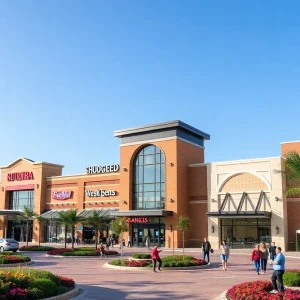News Summary
Meta, the parent company of Facebook and Instagram, is relocating its trust and safety team from California to Texas. This shift is part of an effort to enhance free expression and reduce heavy censorship in content moderation. Mark Zuckerberg emphasizes a move towards dealing with serious illegal issues while encouraging users to report offensive posts. As tech companies increasingly move to Texas for a perceived business-friendly environment, questions arise about how these changes will impact moderation policies and employee transparency.
Austin, Texas Takes the Spotlight as Meta Moves Trust and Safety Team
In an unexpected turn of events, tech enthusiasts are abuzz as Meta, the company that oversees popular platforms like Instagram and Facebook, has decided to move its trust and safety team from the sunny west coast of California to the heart of Texas! This move is not just about a change of scenery; it’s igniting discussions around the topics of free expression and the mounting debates over how content is monitored online.
Big Shifts on the Horizon
Mark Zuckerberg, the mastermind behind Meta, recently shared this news in a video that touched on growing concerns regarding government censorship, specifically targeting actions from the current leadership. While Meta hasn’t spilled the beans on the precise Texas location, it already has a major operation in Austin along with smaller offices scattered across cities like Garland, Fort Worth, Temple, and Houston.
Zuckerberg believes that moving to a place seen as having fewer biases within their teams could boost the public’s trust in their operations. This relocation appears to align with Meta’s intention to take a more laid-back approach to monitoring online content, which many critics argue has become overly controlling in the past few years.
Freedom of Speech Takes Center Stage
With this change, Meta is indicating a shift away from its previous, more stringent content moderation tactics, which were often focused on tackling misinformation. The company is now putting its energy into addressing serious illegal activities, like drug trade, child exploitation, and terrorism. Mark’s message seems to echo a desire to return to their “roots of free expression,” planning to create a digital space that minimizes aggressive censorship.
As the 2024 U.S. elections loom on the horizon, the importance of free speech emerges as a crucial topic. Meta aims to collaborate with what is anticipated to be a new administration that could hold a more open-minded view toward international policies affecting its platforms. This collaboration could bring about substantial changes in discussions on sensitive subjects such as gender and immigration, possibly allowing for views that diverge from mainstream narratives.
New Approach to Content Moderation
In a surprising twist, Meta is also moving away from relying primarily on algorithms for content moderation. Instead, users will be encouraged to report any offensive posts themselves, which signifies a notable departure from the prior reliance on automated fact-checking systems that have been criticized for their potential political biases and their negative impact on user trust.
The past moderation techniques employed by Meta came under fire during tumultuous times, including the COVID-19 pandemic. Skeptics of the Texas move are suggesting that it could be more of a superficial gesture to appease certain political figures rather than a real shift in policy or structure.
Is Texas the New Tech Epicenter?
The relocation of Meta’s team aligns it with other tech powerhouses, like Elon Musk, who has taken his company X (formerly Twitter) to Texas as well. This trend suggests that many tech firms are on the hunt for a regulatory environment that feels more accommodating to their business needs. Yet, lingering questions arise about whether this move will lead to genuine improvements in underlying biases present in default moderation practices.
Although Meta is in a transitional period with over 11,000 global job cuts, including a significant number in Texas, it still maintains a substantial workforce in the state. Concerns loom regarding how these changes will affect employees, particularly in relation to transparency around policies regarding content moderation.
Looking Ahead
As Meta gears up for this fresh chapter in Texas, it raises several pertinent questions about how the balance of free speech and content moderation will play out. Will users feel safer engaging in open conversations without the looming threat of censorship? As the tech landscape continues to evolve, all eyes are set on Meta and its adaptive strategies, waiting to see what the future holds in this unfolding saga.
Deeper Dive: News & Info About This Topic
- The New York Times
- Wikipedia: General Knowledge
- The Washington Post
- Google Search: Meta Trust Safety Team
- The Guardian
- Google Scholar: Meta Content Moderation
- Longview News-Journal
- Encyclopedia Britannica: Meta Platforms
- Meta Newsroom
- Google News: Meta Texas Move








